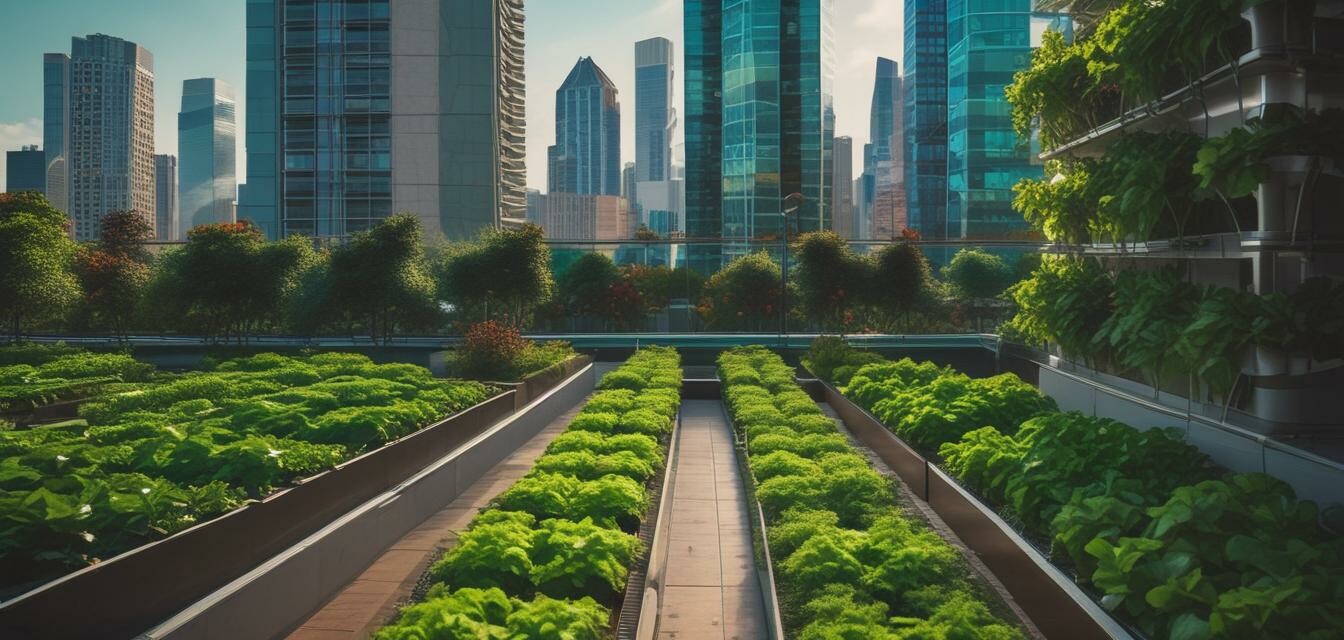
Urban Gardening: The Future of Hydroponics
Key Takeaways
- Hydroponics offers a sustainable method for growing food in urban areas.
- Innovative urban initiatives are enhancing food accessibility through hydroponics.
- Hydroponic systems can fit compact spaces, making them ideal for city gardening.
- Urban gardening initiatives promote community engagement and sustainability.
- The technology behind hydroponics continues to evolve, leading to new opportunities.
As cities grow and urban spaces become more crowded, the need for sustainable food production solutions becomes increasingly urgent. Hydroponic gardening has emerged as a revolutionary approach to urban farming, allowing individuals and communities to grow fresh produce without the constraints of traditional soil-based agriculture. This article explores how hydroponics is shaping the future of urban gardening by highlighting innovative initiatives that promote sustainability and food accessibility.
What is hydroponics?
Hydroponics is a method of growing plants in nutrient-rich water solutions rather than soil. This technique allows for efficient use of resources, providing essential minerals and nutrients directly to the plant roots. Hydroponic systems are not only space-saving but also typically result in faster growth rates and higher yields compared to traditional farming methods.
The rise of urban gardening
With the rapid urbanization of cities, urban gardening has become a vital component in addressing food security. Urban gardening provides a way to produce fresh food close to consumers, reducing the reliance on long supply chains. Hydroponics plays a significant role in this movement, providing solutions that can thrive in limited spaces.
Benefits of urban hydroponics
| Benefit | Description |
|---|---|
| Space efficiency | Hydroponic systems can be set up vertically or in confined areas, ideal for city environments. |
| Water conservation | Uses up to 90% less water than traditional soil gardening. |
| Reduced transportation | Local production decreases the need for food transportation, lowering carbon footprints. |
| Fast growth cycles | Crops can be harvested multiple times a year, improving food availability. |
Innovative urban initiatives
Various cities worldwide are embracing hydroponics in urban gardening initiatives to enhance food sustainability. Here are some noteworthy examples:
- **Rooftop gardens**: Many urban buildings have begun installing hydroponic systems on rooftops, transforming underutilized spaces into productive gardens.
- **Community projects**: Initiatives that encourage local involvement in hydroponics help educate residents about sustainable practices.
- **School programs**: Schools integrating hydroponic systems into their curriculum foster a new generation of environmentally conscious individuals.
How hydroponics enhances food accessibility
By decentralizing food production, hydroponic urban gardens provide communities with easy access to fresh produce. Urban gardening initiatives often prioritize underserved areas, ensuring that all community members can benefit from nutritious food options. Moreover, educational outreach programs teach residents how to grow their food using hydroponics, empowering individuals to take control of their food sources.
The technology behind urban hydroponics
The technology supporting hydroponic systems continues to advance. Innovations such as automated nutrient delivery systems, solar-powered setups, and smart sensors are making hydroponic growing even more accessible and easier to manage. The following table illustrates some of the recent technological advancements in hydroponics:
| Technology | Description | Impact on Urban Gardening |
|---|---|---|
| Automated systems | Self-regulating hydroponic systems that adjust nutrient levels automatically. | Reduces the need for constant monitoring, making gardening easier for everyone. |
| Smart sensors | Devices that monitor plant health and environmental conditions in real-time. | Helps optimize growth conditions, leading to better yields. |
| LED grow lights | Energy-efficient lighting tailored for plant growth. | Allows for efficient indoor farming, regardless of natural sunlight availability. |
Sustainability and environmental impact
Urban hydroponics not only enhances food accessibility but also promotes sustainability. By using resources more efficiently, urban hydroponic systems help reduce the environmental footprint associated with agriculture. The following aspects highlight the sustainability of hydroponics:
- **Less land use**: Hydroponics can produce food on smaller land areas, preserving green spaces.
- **Reduced pesticide use**: The controlled environment decreases the need for harmful pesticides, resulting in healthier food.
- **Carbon footprint reduction**: Localized food production minimizes the transportation required for food goods.
Challenges for urban hydroponics
While hydroponics holds significant promise for urban gardening, some challenges remain. Here are a few:
- **Initial costs**: Setting up hydroponic systems can be costly, deterring some from adopting this method.
- **Technical knowledge**: Successful hydroponic gardening requires some level of technical understanding and skill.
- **Community engagement**: Ensuring local communities are involved and educated about hydroponics is crucial for success.
Conclusion
Urban gardening through hydroponics represents an exciting frontier in sustainable food production. As urban areas continue to grow, integrating hydroponics into city life not only addresses food security but also fosters community engagement and education about sustainable practices. With ongoing advancements in technology and growing interest in urban initiatives, the future of hydroponics is poised to make a significant impact on urban landscapes.
Tips for starting your own urban hydroponic garden
- Start small: Begin with a simple system while you learn the basics.
- Invest in quality materials: Selecting durable and efficient components can save you money in the long run.
- Join community groups: Engaging with local gardening groups can provide valuable insight and support.

